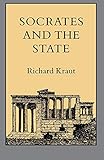Socrates and the State / Richard Kraut.
Material type: TextPublisher: Princeton, NJ : Princeton University Press, [2022]Copyright date: ©1984Description: 1 online resource (350 p.)Content type:
TextPublisher: Princeton, NJ : Princeton University Press, [2022]Copyright date: ©1984Description: 1 online resource (350 p.)Content type: - 9780691242927
- PHILOSOPHY / History & Surveys / Ancient & Classical
- Analogy
- Anytus
- Apology (Plato)
- Argument from analogy
- Argument from authority
- Aristotle
- Athenian Democracy
- Attempt
- Authoritarianism
- Begging the question
- Callicles
- Categorical imperative
- Charmides (dialogue)
- Civil disobedience
- Clarke's three laws
- Classical Athens
- Consideration
- Critias (dialogue)
- Critias
- Criticism
- Crito
- Damascius
- Deliberation
- Democratic liberalism
- Demosthenes
- Doctrine of necessity
- Doctrine
- Dokimasia
- Dynamism (metaphysics)
- Egocentrism
- Epinomis
- Ethics
- Eudaimonia
- Eudemian Ethics
- Euripides
- Euthydemus (dialogue)
- Euthyphro (prophet)
- Euthyphro
- Explanation
- Good and evil
- Gorgias
- Greek mythology
- Hedonism
- Hippias (tyrant)
- Hippias Minor
- Hippias
- In Defense of Anarchism
- Isocrates
- Jury
- Kantianism
- Liberalism
- Meletus
- Meno
- Moral development
- Morality
- Necessity
- Nicias
- Obedience (human behavior)
- Objection (law)
- Parmenides
- Philo of Byblos
- Philosopher
- Philosophical Studies
- Philosophy of law
- Philosophy
- Piety
- Plea
- Plotinus
- Political philosophy
- Politics
- Popular sovereignty
- Prosecutor
- Protagoras (dialogue)
- Protagoras
- Pythagoreanism
- Ratification
- Reason
- Relativism
- Republic (Plato)
- Socrates
- Socratic method
- Socratic questioning
- Solipsism
- Sophist (dialogue)
- Sophist
- Spinozism
- Statute
- Suggestion
- The Death of Socrates
- The Open Society and Its Enemies
- Theory of Forms
- Theory
- Thought
- Thrasymachus
- Trial of Socrates
- Truism
- Two Treatises of Government
- Utilitarianism
- Virtue
- Working hypothesis
- 320.1/01
- online - DeGruyter
| Item type | Current library | Call number | URL | Status | Notes | Barcode | |
|---|---|---|---|---|---|---|---|
 eBook
eBook
|
Biblioteca "Angelicum" Pont. Univ. S.Tommaso d'Aquino Nuvola online | online - DeGruyter (Browse shelf(Opens below)) | Online access | Not for loan (Accesso limitato) | Accesso per gli utenti autorizzati / Access for authorized users | (dgr)9780691242927 |
Browsing Biblioteca "Angelicum" Pont. Univ. S.Tommaso d'Aquino shelves, Shelving location: Nuvola online Close shelf browser (Hides shelf browser)

|

|

|

|

|

|

|
||
| online - DeGruyter Plato's Cretan City : A Historical Interpretation of the Laws / | online - DeGruyter The Peace Brokers : Mediators in the Arab-Israeli Conflict, 1948-1979 / | online - DeGruyter A Documentary History of Art, Volume 2 : Michelangelo and the Mannerists, The Baroque and the Eighteenth Century / | online - DeGruyter Socrates and the State / | online - DeGruyter Gogol From the Twentieth Century : Eleven Essays / | online - DeGruyter Apparitions in Late Medieval and Renaissance Spain / | online - DeGruyter Japan and Its World : Two Centuries of Change / |
Frontmatter -- CONTENTS -- ACKNOWLEDGMENTS -- ABBREVIATIONS -- I PRELIMINARIES -- II JUSTICE, AGREEMENT, AND DESTRUCTION -- III PERSUADE OR OBEY -- IV CITIZENS AND OFFSPRING -- V PRIVATE PERSONS AND GENERALIZATION -- VI DOKIMASIA, SATISFACTION, AND AGREEMENT -- VII SOCRATES AND DEMOCRACY -- VIII DEFINITION, KNOWLEDGE, AND TEACHING -- APPENDIX Perplexity in the Hippias Minor -- BIBLIOGRAPHY -- GENERAL INDEX -- INDEX OF PASSAGES
restricted access online access with authorization star
http://purl.org/coar/access_right/c_16ec
This fresh outlook on Socrates' political philosophy in Plato's early dialogues argues that it is both more subtle and less authoritarian than has been supposed. Focusing on the Crito, Richard Kraut shows that Plato explains Socrates' refusal to escape from jail and his acceptance of the death penalty as arising not from a philosophy that requires blind obedience to every legal command but from a highly balanced compromise between the state and the citizen. In addition, Professor Kraut contends that our contemporary notions of civil disobedience and generalization arguments are not present in this dialogue.
Mode of access: Internet via World Wide Web.
In English.
Description based on online resource; title from PDF title page (publisher's Web site, viewed 02. Mrz 2022)


